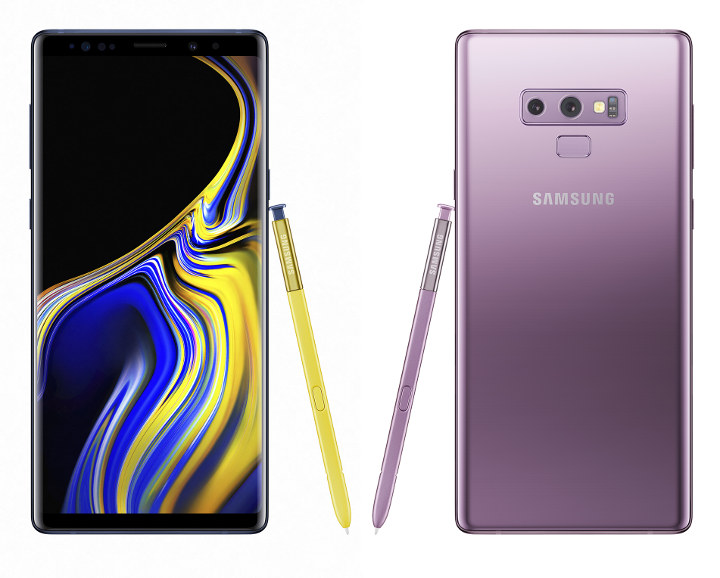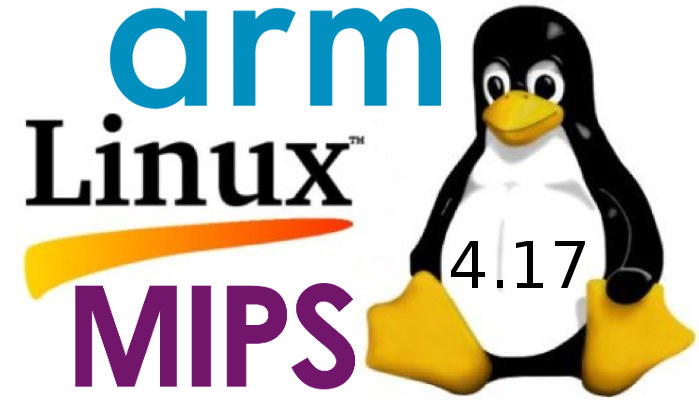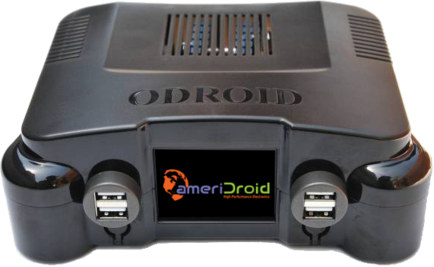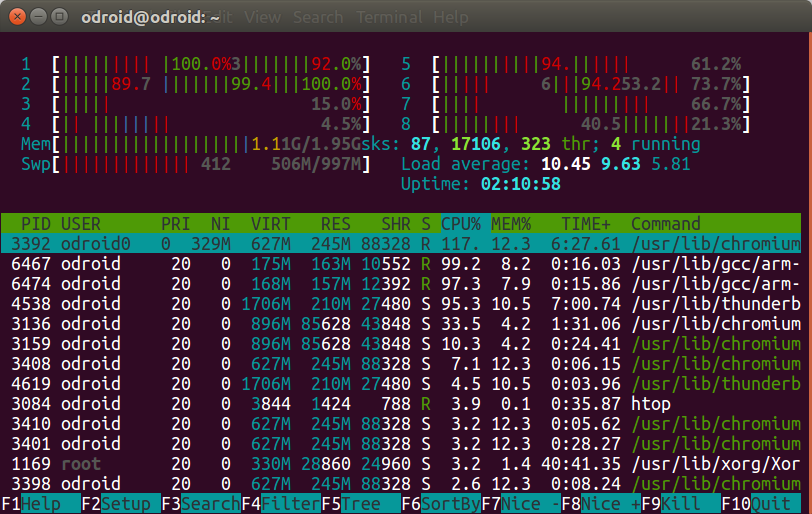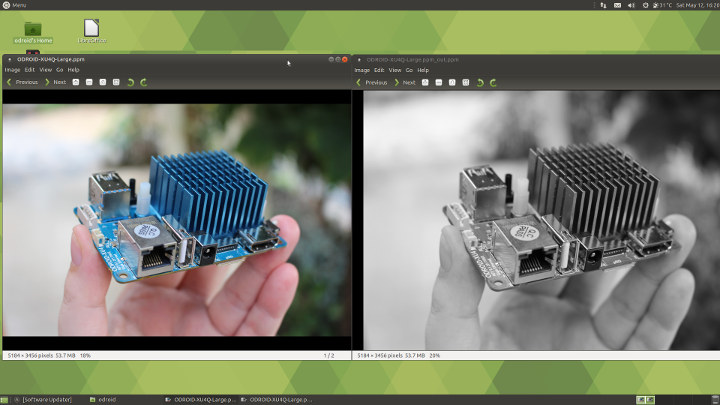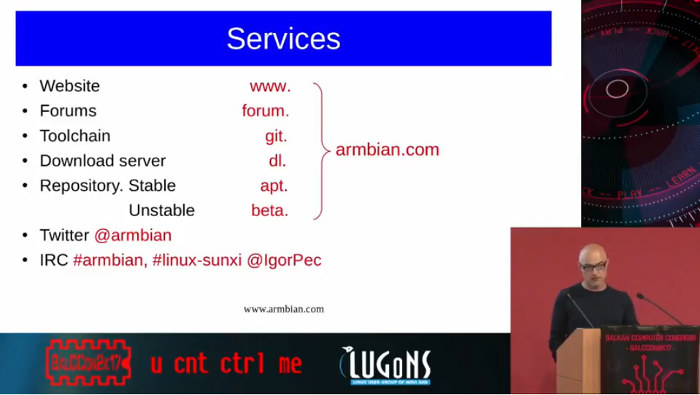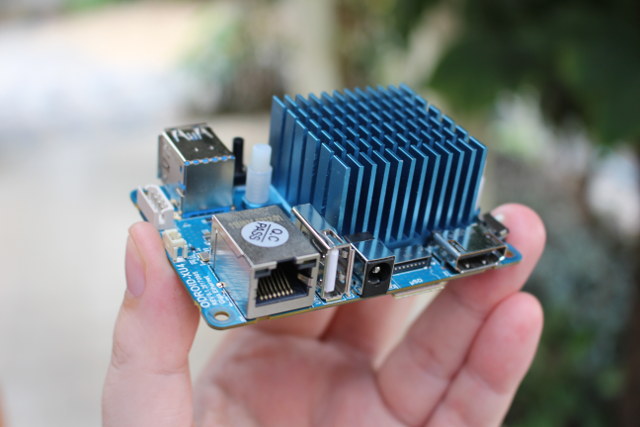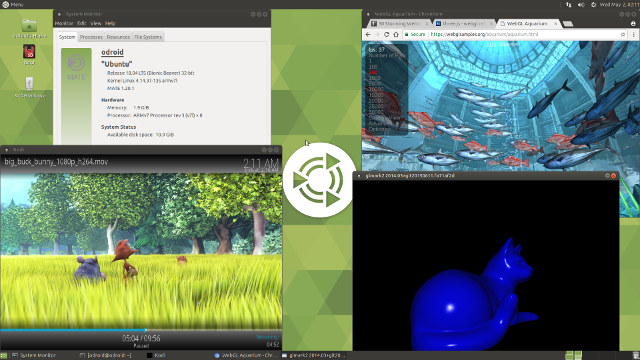Samsung has just launched a new version of their Galaxy Note smartphone with Samsung Galaxy Note9, and it’s always interesting to check out the specifications and features to see if they’ve brought forward some innovations, beside improved performance and features. Samsung Galaxy Note9 specifications: SoC (one or the other depending on market) Samsung Exynos 9810 octa-core processor with 4x Exynos M3 @ up to 2.7GHz , 4x Arm Cortex A53 cores @ up to 2.8 GHz, Arm Mali-G72MP18 GPU Qualcomm Snapdragon 845 octa-core processor with four Kryo 385 performance cores @ 2.8GHz, 4x Kryo 385 efficiency cores @ 1.7GHz, Adreno 630 GPU Memory / Storage Options 6GB LPDDR4x, 128GB UFS, microSD slot up to 512GB 8GB LPDDR4x, 512GB UFS, microSD slot up to 512GB Display – 6.4″ Quad HD+ Super AMOLED with 2960×1440 resolution (516ppi). Default is Full HD+, but that can be changed to Quad HD+ in the settings […]
Linux 4.17 Release – Main Changes, Arm & MIPS Architectures
Linus Torvalds released Linux 4.17 last Sunday: So this last week was pretty calm, even if the pattern of most of the stuff coming in on a Friday made it feel less so as the weekend approached. And while I would have liked even less changes, I really didn’t get the feeling that another week would help the release in any way, so here we are, with 4.17 released. No, I didn’t call it 5.0, even though all the git object count numerology was in place for that. It will happen in the not _too_distant future, and I’m told all the release scripts on kernel.org are ready for it, but I didn’t feel there was any real reason for it. I suspect that around 4.20 – which is I run out of fingers and toes to keep track of minor releases, and thus start getting mightily confused – I’ll switch […]
XU4Q Retro Gaming System Runs ODROID GameStation Turbo, Sells for $150 and Up
One of the use case for little Arm Linux boards is retro gaming thanks to open source projects like RetroPie, RetrOrangePi, Lakka, and others. To get a complete & usable system, it’s possible to purchase console kits, enclosures, or even complete game consoles running one of such emulators. This morning I’ve come accross another option, as Ameridroid is now taking pre-order for XU4Q Retro Gaming System for $149.95 and up. As it name implies, the console is based on ODROID-XU4Q, the fanless version of ODROID-XU4 board, which with its Exynos 5422 octa-core processor and 2GB RAM will be much more powerful than Raspberry Pi 3 boards, and most other boards on the market. The kit also includes OGST Gaming Console, GameSir G3w analog joystick controller, a power supply, and a 16GB microSD boot media flashed with ODROID Game Station Turbo based on Debian. If you already own an ODROID-XU4(Q) board, […]
Running out of RAM in Ubuntu? Enable ZRAM
Whenever I ran out of RAM on a Linux system, I used to enable swap memory using the storage device to provide an extra bit of memory. The main advantage is that it’s does not require extra hardware, but come at the cost of much slower access, and potential issues or wear and tear, unless you only use it temporary. This week-end, I compiled Arm Compute Library on ODROID-XU4Q board, and the first time it crashed because the system ran out of memory, so I enable swap on the eMMC flash module to restart and complete the build successfully. However, I was told it would have been better to enable ZRAM instead. So what is ZRAM? Wikipedia explains: zram, formerly called compcache, is a Linux kernel module for creating a compressed block device in RAM, i.e. a RAM disk, but with on-the-fly “disk” compression. So it’s similar to swap, expect […]
How to Get Started with OpenCL on ODROID-XU4 Board (with Arm Mali-T628MP6 GPU)
Last week, I reviewed Ubuntu 18.04 on ODROID-XU4 board testing most of the advertised features. However I skipped on the features listed in the Changelog: GPU hardware acceleration via OpenGL ES 3.1 and OpenCL 1.2 drivers for Mali T628MP6 GPU While I tested OpenGL ES with tools like glmark2-es2 and es2gears, as well as WebGL demos in Chromium, I did not test OpenCL, since I’m not that familiar with it, except it’s used for GPGPU (General Purpose GPU) to accelerate tasks like image/audio processing. That was a good excuse to learn a bit more, try it out on the board, and write a short guide to get started with OpenGL on hardware with Arm Mali GPU. The purpose of this tutorial is to show how to run an OpenCL sample, and OpenCL utility, and I won’t go into the nitty gritty of OpenCL code. If you want to learn more […]
Armbian History, Infrastructure, and Progress Report
Many of us rely on Armbian Debian and Ubuntu images for our cheap Arm development boards since they usually offer better support than vendor supplied firmware images. The community has just updated Armbian website, but the thing that caught my eye in the announcement was a link to a 45-minute presentation by Igor Pečovnik, working full-time on the project, that details the history about Armbian, and provides a relatively recent progress update as it was made at BalCCon – Balkan Computer Congress in November 2017. I’ve embedded the video further below, but first I’ll provide summary of the key point made during the presentation. It all started with Cubieboard (A20) as Igor was trying to fix some issues, and learn how to improve software support on the board. Several people joined his efforts on Cubieboard forums, and eventually Armbian website launched in mid 2014 running on the Cubieboard then ODROID-XU4 […]
Review of Ubuntu 18.04 on ODROID-XU4Q Development Board
Hardkernel released their first Samsung Exynos 5422 octa-core board in July 2014 with ODROID-XU3, which at the time was really a powerful board, but also pricey at $179. Later that year, the company released a cheaper version ($99) called ODROID-XU3 Lite, which I had the chance to review with Ubuntu 14.04 and Android 4.4. The company’s adventure with Exynos 5422 processor did not stop there, as in 2015 they released the smaller and even cheaper ($74) ODROID-XU4 board, and last year launched a fanless version of the board with ODROID-XU4Q featuring a large heatsink. More recently, the company also introduced ODROID-HC1 and ODROID-MC1 solutions for respectively network storage and clusters applications. That’s the short history of Hardkernel Exynos 5422 boards as I remember it, and that means that since 2014, or nearly 4 years so far, the company has kept updating Ubuntu and Android firmware for their board, including the […]
Hardkernel & Libre Computer Release Ubuntu 18.04 Images for ODROID-XU4/3 & AML-S905X-CC Boards
Ubuntu 18.04 “Bionic Beaver” LTS operating system was released just last week, and at least two Arm board companies have independently released Ubuntu 18.04 images for their boards. First, Hardkernel has released an Ubuntu 18.04 MATE image for their Exynos 5422 powered ODROID-XU4(Q), ODROID-XU3 (Lite), ODROID-HC1, and ODROID-MC1 boards/kits. The ODROID Ubuntu image comes with the following key features: Linux 4.14.37 LTS GPU hardware acceleration via OpenGL ES 3.1 and OpenCL 1.2 drivers for Mali T628MP6 GPU FFMPEG/ffplay with hardware accelerated H.264 decoder X11 armsoc display driver with 2D acceleration GPU accelerated Chromium browser (WebGL contents and YouTube 720p plays well) Kodi 17.6 can play H.264 1080p/60fps BigBuckBunny sample video. (Note: no h.265, no 4K in Exynos-5422 processor) WiringPi and other GPIO/SPI/I2C/ADC/I2S tinkering libraries are available. KVM & Docker More stable and performant USB 3.0 and Gbit Ethernet drivers The company sent me a kit based on ODROID-XU4Q board to […]


